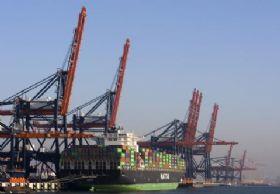US warns Russia over chicken imports ban

US Agriculture Secretary Tom Vilsack warned that a Russian ban on US chicken imports could hurt relations between the two countries, the Moscow Times reported.
A team of US experts is set to arrive in Moscow on Jan. 17 to discuss the ban, which went into effect Jan. 1, Vilsack said. “Our hope is that they understand the impact this will have generally on our relationship,” he said Saturday in Ireland.
The Federal Consumer Protection Service said a procedure used by US producers for cooling and disinfecting chicken by immersing it in chlorinated water leads to the contamination of the chicken and is dangerous for human health. “This is not a ban,” Gennady Onishchenko, the service’s head, said Sunday. “Treat poultry the way our laws require and nobody will object.”
Onishchenko, an outspoken champion of food import bans, signed a decree in June 2008 outlawing the use of chlorine in poultry treatment, but he later pushed back the measure’s starting date by a year to Jan. 1. “We are paying for the chicken and have the right to demand the meat that our country needs,” he said, adding that US officials had not started addressing the issue until late last year.
Onishchenko discussed the ban with James Miller, the US Agriculture Department’s undersecretary for farm and foreign agricultural services, late New Year’s Eve.
Experts arriving to negotiate the ban will also address the fate of poultry already shipped and en route to Russia, Onishchenko said, adding that “reasonable volumes” would be permitted to enter the market.
US poultry producers have argued that there is no scientific evidence that using chlorinated water is unsafe. The ban would “completely halt exports of US poultry meat to Russia,” according to a letter sent by the Poultry and Egg Export Council to Russian authorities in November.
In 2002, a similar ban was introduced after the US hiked steel import tariffs and was lifted a day after the tariffs were reduced.
Europe has upheld a ban on US poultry since 1997 because of the chlorine treatment. Russia is the United States’ biggest foreign market for poultry, importing more than 816 million kilograms of broilers in 2008, or about 26 percent of all US chicken exports — an $800 million trade.
Russia began importing large quantities of US chicken in the early 1990s, with frozen chicken legs earning the moniker “Bush legs,” in honour of the US president during whose tenure the imports commenced.
The health watchdog has also banned pork from several U.S. producers because of antibiotics used in the meat.













